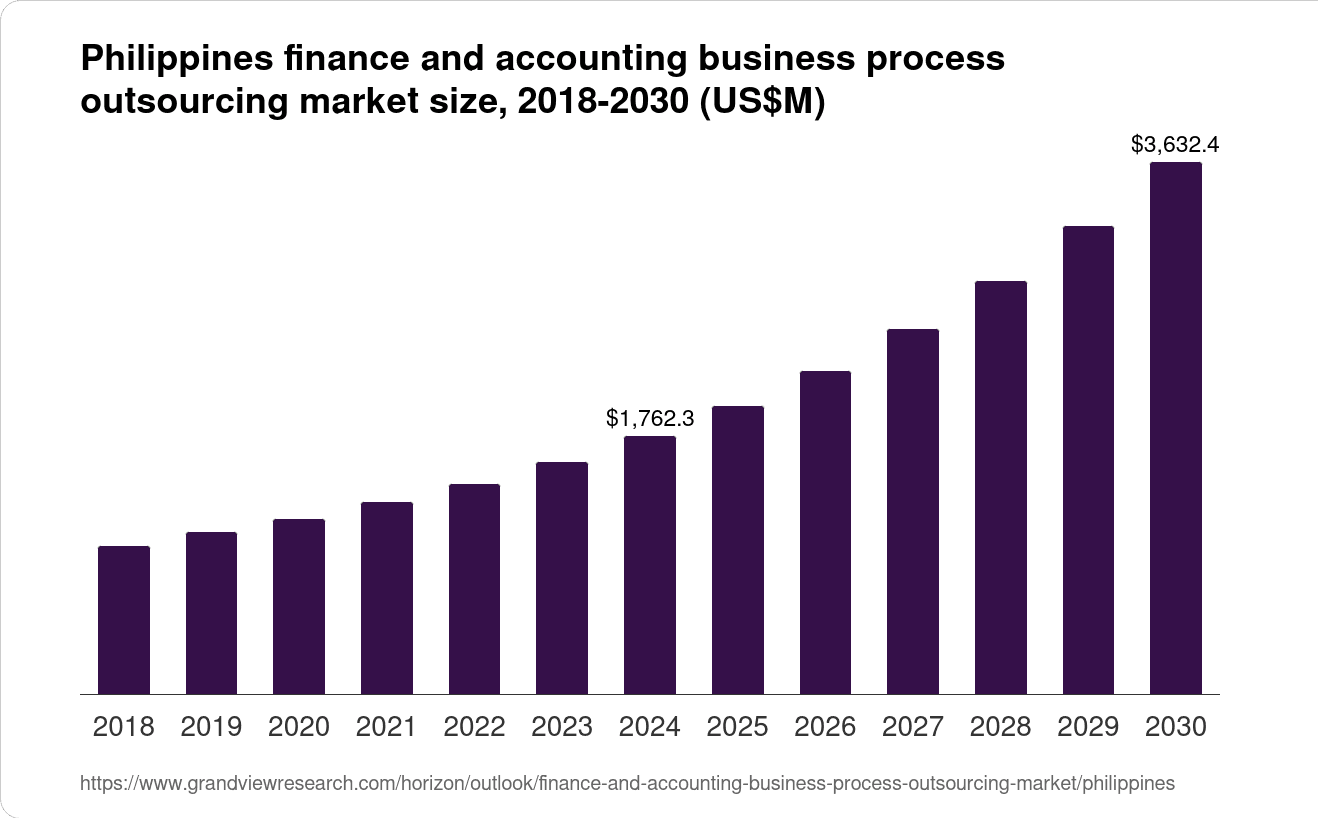The Philippines BPO Industry Outlook remains strong in 2024 and beyond. As of 2023, the business process outsourcing (BPO) sector made up 7.5% of the nation’s GDP, with over 1.4 million Filipinos employed and revenues exceeding $30 billion. This is more than just an economic success—it’s a national advantage. With revenues projected to reach $38 billion in 2024 and potentially $40 billion+ by 2025, the sector continues to be a vital engine of growth. Employment is expected to expand to 1.82 million workers this year, with the workforce forecasted to hit 2.5 million by 2028.
Philippines BPO Industry Outlook: The Shift to High-Value Services
Traditionally, the BPO industry in the Philippines was known for voice-based customer service. But things are changing fast. Companies are now moving into high-value services like data analytics, consulting, software development, and financial services.

This shift helps the industry stay competitive on the global stage. It also opens new doors for Filipino workers to move into higher-paying, more skilled roles.
Read Also: The Philippines BPO Industry Outlook Keeps Growing – Why?
AI and Automation Take Center Stage
Technology is rapidly reshaping the sector. Around 40% of BPO firms in the Philippines now use AI and Robotic Process Automation (RPA). These tools improve accuracy, cut down repetitive tasks, and speed up service delivery.
While automation can reduce demand for certain jobs, it also creates new ones. Roles in AI management, data analysis, cybersecurity, and digital support are on the rise. The challenge is making sure the workforce is ready.
Read Also: The Shift in the Philippines Digital Construction Tools
Expanding Markets Beyond the West
The Philippines has long served clients in the US and Europe. But new markets are growing, especially in Japan, South Korea, Australia, and Canada. This reduces overdependence on any one region and increases resilience. With English proficiency and cultural adaptability, Filipino professionals are well-positioned to meet the needs of a diverse global market.
Government Support and Innovation
The government is stepping in to support innovation. The National AI Strategy Roadmap 2.0 and the proposed ASEAN AI regulatory framework aim to balance tech advancement with job protection. These policies promote workforce upskilling, push for ethical tech use, and help businesses stay ahead of the curve.
Facing the Philippines BPO Industry Outlook Challenges
Even with its strengths, the BPO sector has hurdles to overcome. A major issue is the skills gap. Around 21% of industry leaders cite a shortage of advanced digital skills, including AI, coding, and data science.
Read Also: How to Overcome Philippines Construction Workforce Shortfall
Rising operational costs also put pressure on profit margins, especially as global competitors like India, Vietnam, South Africa, and Poland expand their own BPO sectors. At the same time, cybersecurity risks are growing, pushing firms to invest more in digital protection.
Building a Future-Ready Industry
Despite these challenges, the Philippines BPO Industry Outlook remains bright. The sector is expected to add 300,000 to 500,000 new jobs by 2025, especially in tech-enabled roles. To fully unlock this growth, both the public and private sectors must invest in education, training, and innovation. That means offering programs that teach digital skills, encouraging partnerships with tech firms, and supporting small BPO companies with scalable tools.
Promising Philippines BPO Industry Outlook
The Philippine BPO industry is evolving. With the right strategies in place, it can keep growing while providing millions of Filipinos with meaningful, future-ready careers. The next chapter will be defined not just by cost efficiency—but by creativity, innovation, and a commitment to digital excellence.

